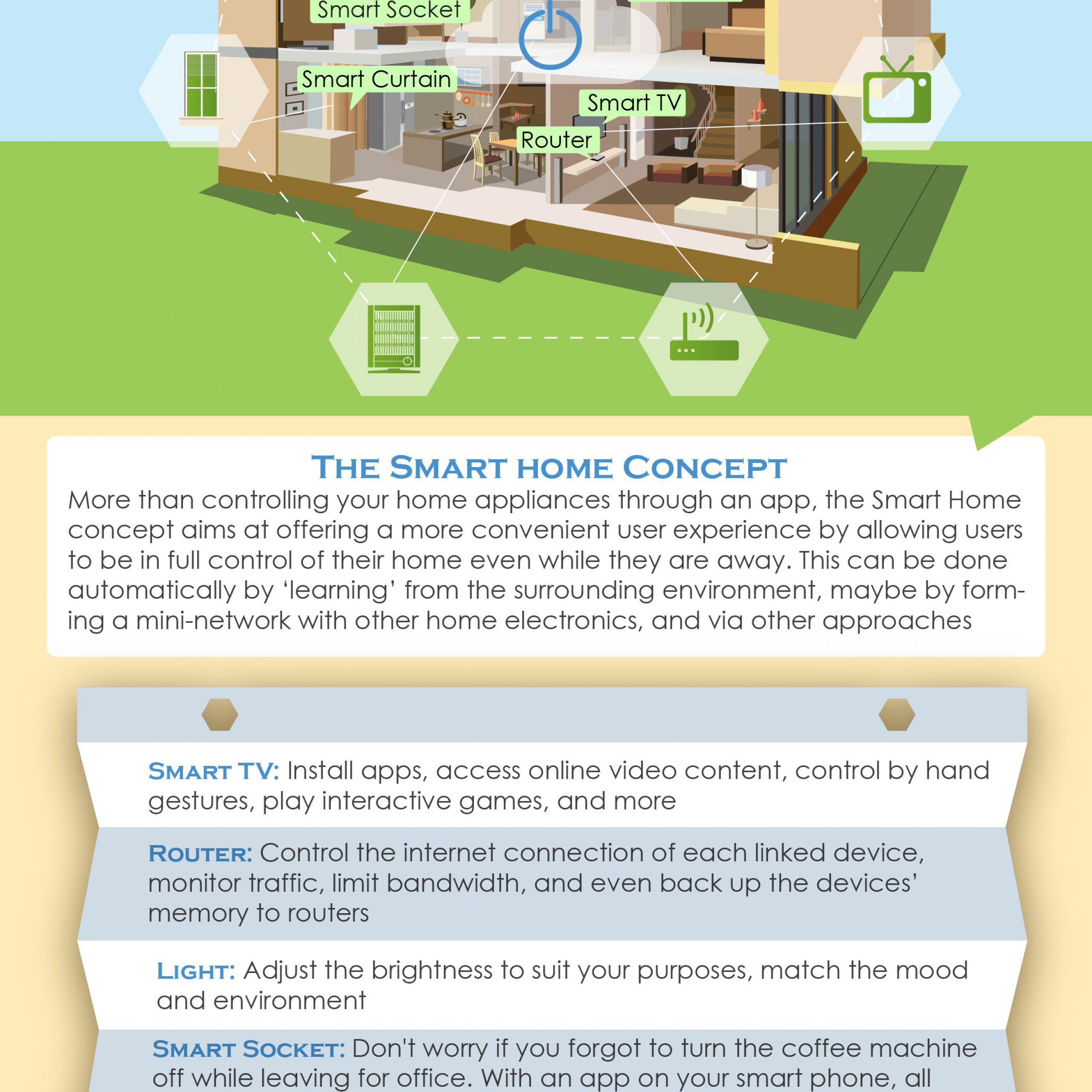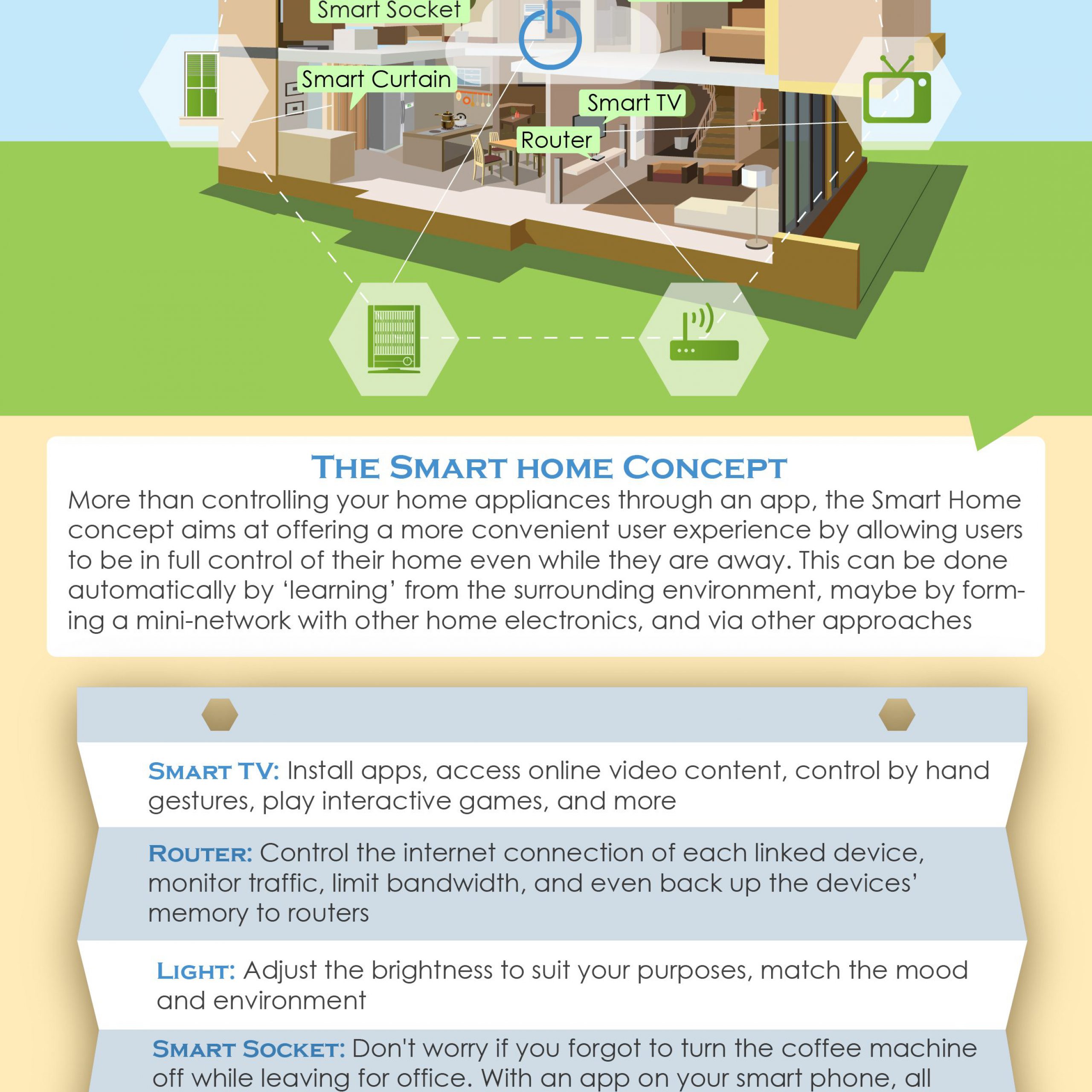Smart Home technologies are out to change the way we live and make our life more efficient.
The idea of Smart Homes has been getting a huge amount of popularity in recent years. Perhaps one of the best demonstrations of the Smart Home concept is Xanadu 2.0, Microsoft co-founder Bill Gates’ $123 million, 66,000 square foot mansion at Medina, Washington. Bill Gates reportedly has a favorite tree near the driveway and his beloved 40-year-old maple tree is monitored 24/7 by a computer. If the computer detects that the tree needs water, it is automatically watered—without any human intervention. There is artwork on the walls that you can change with just the click of a button. You can change the light, temperature and ambience of a room with a little pin.
It all sounds very desirable, right? But not everyone is Bill Gates, so no, you probably can’t afford to have a computer monitoring a tree day and night.
So far, the idea of having a Smart Home has remained a pipe dream for all but the super-rich. And that might change now.
Smartphones are now ubiquitous, and with more electronic devices capable of connecting to wifi, mini versions of the Internet of Things within individual households have become possible. But the fun part is that the devices are not only connected to each other, but they also interact with each other. So it won’t be long before you literally wake up and smell the coffee—the devices in your house will automatically sense that you are up, the curtains will open on their own and the coffee machine will get to work, even before you step out of bed.
And this is just the beginning.
Smart Homes will have much more to offer in the future. The market has huge potential: data from Juniper Research indicates that by 2018, China’s Smart Home market is likely to expand to RMB 100 billion ($22.8 billion). As a result, almost all the big companies, including both traditional electronics manufacturers like Haier and Midea and tech giants like Xiaomi, Alibaba and JD.com, are trying to outdo each other for a slice of this promising market.
So what does the idea of Smart Homes really stand for and how does it work? To help you understand the concept better, we created the infographic below. (Interested in how Chinese companies are tapping into the Smart Home opportunity? Please click here.)





















